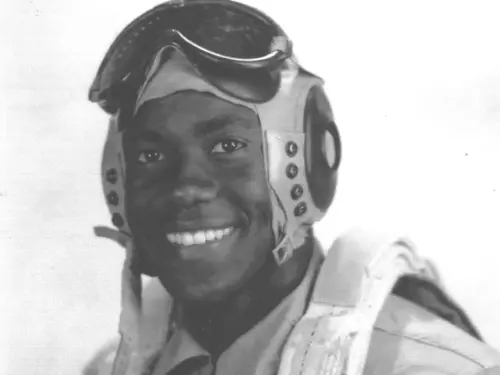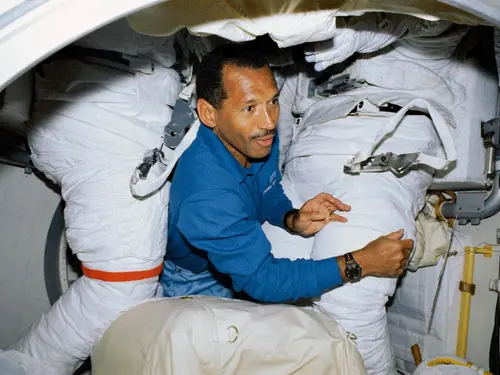
All Stories
Stories of daring, stories of technological feats, stories of prevailing against the odds ... these are the stories we tell at the National Air and Space Museum. Dive in to the stories below to discover, learn, and be inspired.
Showing 21 - 30 of 80

February 22, 2023
Fighting for the Right to Fly: Marlon D. Green
Marlon D. Green fought and won the right to fly as a pilot for a major U.S. airline.

February 21, 2023
Jesse Leroy Brown: Ushering in a New Era of Naval Aviation
During World War II, the U.S. Navy did not have a program that allowed African Americans to train and fly as naval aviators. Jesse Leroy Brown, however, fought through many hurdles to become the first African American to complete Navy flight training. Discover his story.

February 16, 2023
Charles Bolden: Pilot, Astronaut, and NASA Administrator
Maj. Gen. Charles Bolden was NASA's first African American Administrator. He also served in the military and logged over 680 hours in space.

February 14, 2023
Cornelius Coffey: Aviator and Educator
Cornelius Coffey was an advocate for the education of Black Americans in aeronautics.

February 09, 2023
AirSpace Season 7, Ep. 5: It Takes More Than One
In the fifties and sixties to get hired as a stewardess put you in a club that was akin to being a movie star. Around this time, a highly qualified woman, top of her training class, beautiful and poised, didn't understand why she wasn't being hired, until an instructor told her it was because she was Black.

December 21, 2022
Neal Loving Shared His Love of Flying and Soared Over Obstacles
The Loving WR-3 was a roadable airplane designed and built by Neal V. Loving, an aeronautical engineer and pilot.

February 27, 2022
Hubert Jackson’s Tribute to Black Americans in Space
Artist Hubert Jackson creates an artwork that honors contributions made by Black women and men in the space program.

February 23, 2022
Stephanie D. Wilson: On Her Way to the Moon?
Stephanie Wilson is now one of 18 members of the Artemis astronaut team, a group of nine men and nine women from diverse backgrounds. Since NASA has announced its intent to send the first woman and the first person of color to the Moon, she is a strong candidate.

February 22, 2022
The Daily Life of the Tuskegee Airmen: The Lieutenant Rayner Collection
Donated by Ahmed A. “Sammy” Rayner, Jr, these images, paired with his remembrances of his time as a Tuskegee Airman, provide vivid examples of the daily lives of the 477th Bombardment Group and experiences as a Black officer.

January 18, 2022
A Life of Dedicated Service: Remembering Brigadier General Charles McGee
Brig. Gen. Charles E. McGee, the eldest of the surviving Tuskegee Airmen, passed away on January 16, 2022. His life of dedicated service included flying combat aircraft in three major wars—a feat that was unthinkable before his career began, when the US military banned African Americans from combat flying roles.